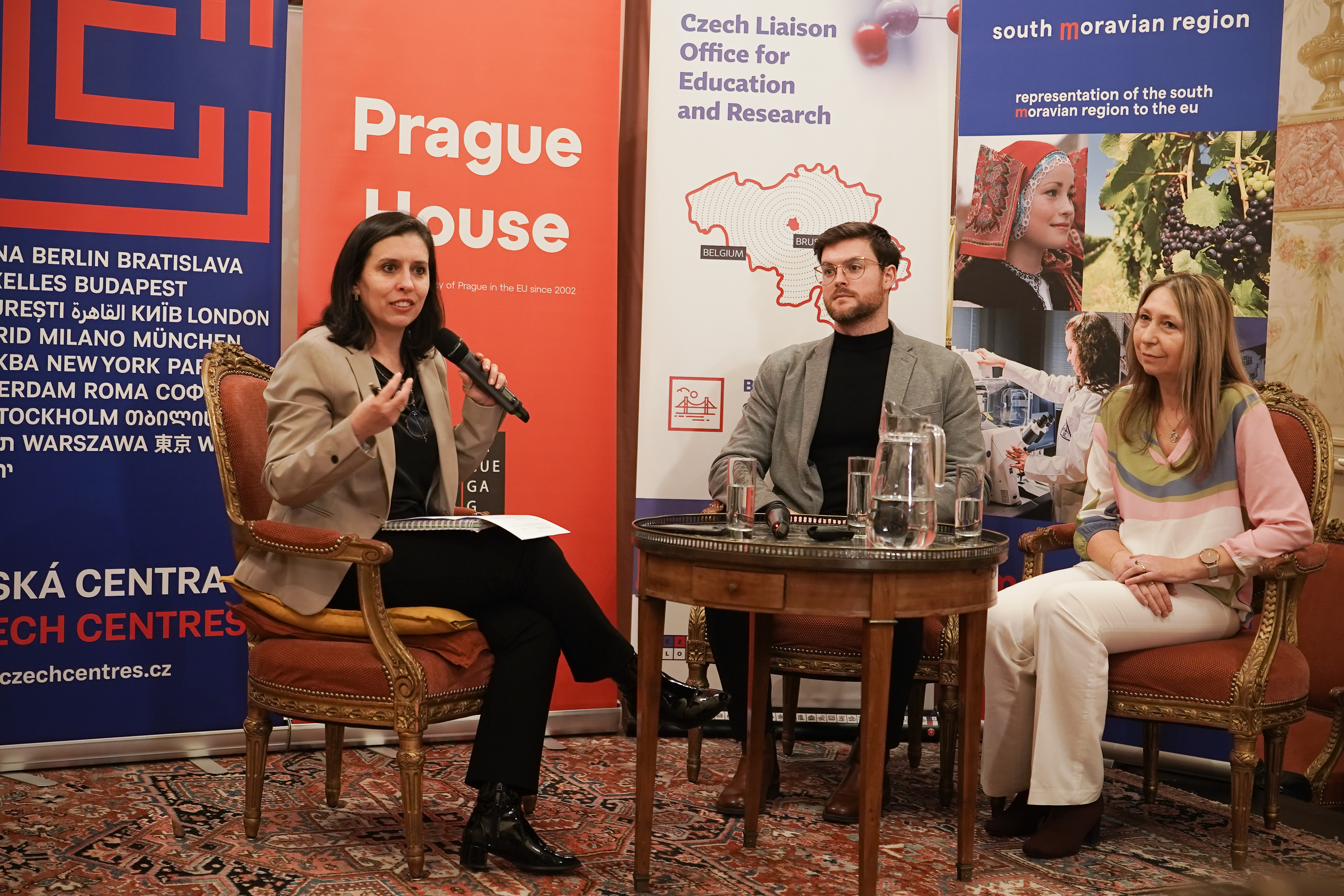The space is closer than we think. Read the insights from the first Science Café event of this year
The event attracted around 90 participants.
On 29 February 2024, the first edition of this year’s Science Café took place, focusing on the usage of data and methods from the Earth Observation. Lucie Kupková from Charles University and Petr Boháček from TRL Space accepted the invitation to the event. Vera Pinto from DG DEFIS of the European Commission guided us through the discussion. The event was jointly organized by the CZELO office, Prague House in Brussels, Representation of the South Moravian Region to the EU and Czech Centre Brussels.
At the outset, participants received an introduction to the spectral remote sensing and its functionalities. It entails measuring the properties of objects without a direct physical contact and it is tied to the electromagnetic spectrum, which includes light invisible to the human eye. Different objects thus reflect, absorb and transmit light based on their chemical composition and structural attributes. For instance, the plant leaves are green, because they reflect more green light than blue or red.
In the first part of the discussion, participants were introduced to project in which Charles University is involved. These initiatives focus on biodiversity mapping through drone technology within the Krkonoše National Park. Additionally, a collaborative project between Charles University and TRL Space in Maldives was showcased. The primary objective of this project is to comprehend and forecast adverse processes affecting the coral islands of Goidhoo and Fulhadhoo. Through 13 flights employing hyperspectral cameras and drones, crucial data was gathered to improve the living conditions of the inhabitants of the islands and protect their natural heritage.

The discussion then delved into the challenge of attracting and retaining professionals within the space sector in the context of labor shortages. Charles University highlighted the difficulty in retaining PhD students, as many are drawn to higher-paying positions in the private sector during their studies. Of great help in this area are international projects that can provide attractive job opportunities. From the perspective of the private sector, it was mentioned that TRL Space participated in the creation of the first space study program called Space Applications at the Technical University in Brno. This program aims to increase the number of graduates and future experts in the space applications sector. Additionally, TRL Space's internship program was highlighted as an attractive incentive, offering financial rewards that can effectively draw talent towards space research and industry endeavors.
The discussion also touched on the issue of space debris, which represents a significant problem. The atmospheric burning of satellites has been found to have adverse effects on the climate, a consequence not previously anticipated. Another challenge is the legal aspect of removing satellites from the atmosphere, as it requires legal ownership of them. This question is one of the key aspects to be solved in the context of solving the problem of space debris and the sustainable use of outer space.
You can check the Science Café photo gallery. In the coming weeks, a recording of the event will also be uploaded to our YouTube channel.